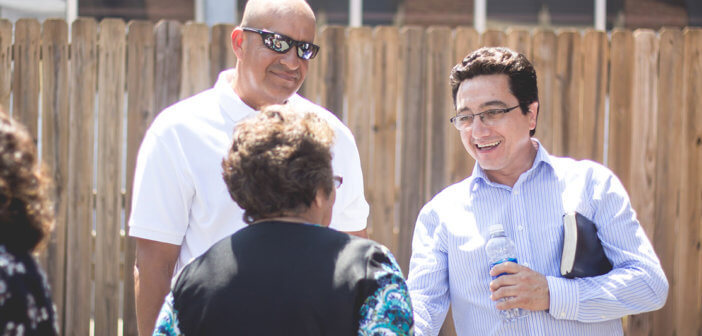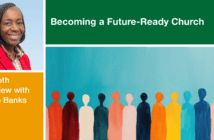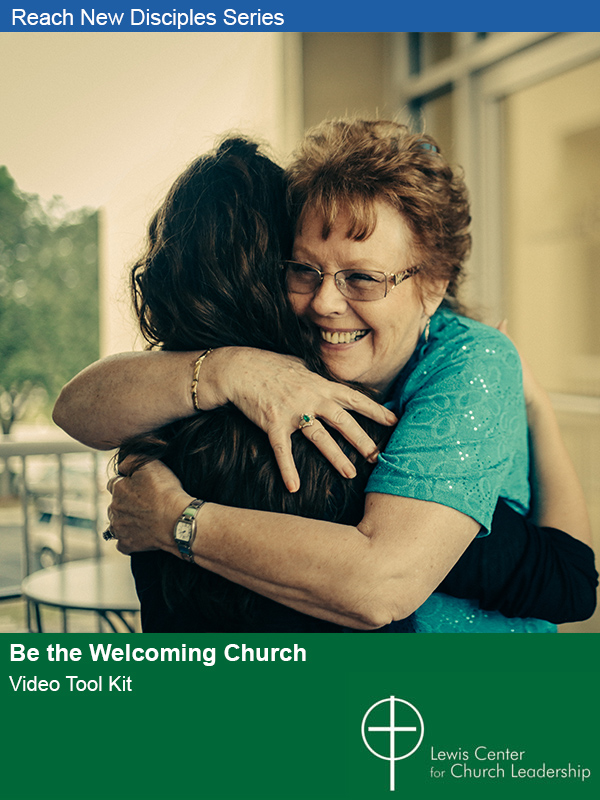Candace Lewis and Rodney Smothers say that churches must leave their buildings, identify community needs, and walk alongside neighbors in order to make a difference. They outline seven steps to engage people and the real issues they confront.
In many communities, it seems as if a number of traditional churches are disconnected. Many have become like silos. But events emerging on the horizon require us to get out of our buildings and find out what the community needs.
We should never embrace the attitude that the church cannot help or make a difference. The church can make a difference, but it will require us to leave our buildings, identify community needs, walk alongside others into their emerging future, and prepare for what is to come.
By its nature, the church must see itself as systems within systems in order to provide care for entire communities. The church doesn’t have to offer only spiritual help. It can offer spiritual empowerment that addresses the holistic needs of people in the community.
Church leaders must go out into the community and engage the people and the real issues they face. When pastors and church leaders go into the community and get to know the people, they place themselves in an excellent position to invite the community into the church to engage in conversations about how the church can have a more positive impact on the community.
How do leaders respond effectively? There are seven “L’s” that are instructive in helping us move forward.
1. Love all people.
We must begin loving all people. We must stop worrying about man-made labels and personal history and move toward developing genuine love for all people. Let’s meet people where they are.
2. Listen more and talk less.
We must stop talking so much and start listening more. We must become better listeners in community. We need to hear what people have to say.
3. Learn from new places and new people.
We must learn from new places of education and inspiration. One size does not fit all. In this culture, we learn in many new ways. We now have more ways to receive information than ever before.
4. Live, lead, and be present in the now.
It is important that we live with current reality, not just talk against it or be afraid of it but live with it. Even though the past was glorious, it doesn’t compare to the present and the great future God has in store for us. We are living in the times that we live in on purpose, not by accident. Let’s ask God and trust God to enable us to be relevant in the times we are living today.
5. Lead into the future.
Leading means taking on the feelings of hopelessness and powerlessness within our communities and addressing both with new perspectives. We may not be able to solve all the issues our communities face; but with God’s help, we can make substantial inroads toward positive change.
6. Launch from a place that creates a win-win.
Everything that is a solution for the church does not have to start its conversation in the church. Believe it or not, there are people in our communities who are trying to build bridges to us and want to partner with us in many significant ways.
7. Learn and lead with others in addressing current justice issues.
In 1966, Dr. Martin Luther King Jr. shared a lecture assembly in Hollywood, Florida, entitled “Don’t Sleep Through the Revolution.” He said that, unfortunately, people as well as organizations are in the midst of great change but miss the cues that should prompt them to get involved and be part of what’s going on. The church doesn’t have to be afraid of change. Instead, it can join with others so it can better address the issues in community.
Often, our ministry of presence between Sundays is our greatest inroad to long-term survival and vitality. The question that is essential to ask in order to expand our ministry focus is, “Who will do this with me?” Churches involved in resurgence are always looking for partnerships that enhance their overall effectiveness in the community.
This article is adapted from Resurgence: Navigating the Changing Ministry Landscape (2019) by Candace M. Lewis and Rodney Smothers. The book is available at Amazon.
Related Resources
- Your Community is Your Congregation by Joe Daniels
- 5 Key Practices for Connecting with Your Context by Mark Gornik and Maria Liu Wong
- Connect with Your Neighbors Video Tool Kit







